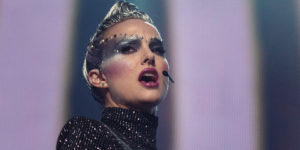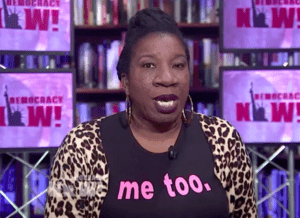Walk Away, Rihanna — You’re a Role Model
A favorite of the MTV crowd, the stunning and successful singer now is a symbol of the ubiquity of domestic violence -- and the dangerously confused message that celebrity culture sends about it.Someone needs to tell Rihanna that it’s not cool.
The international recording diva, police say, was brutally assaulted by her boyfriend, singer Chris Brown, last month. Then she sought to reconcile with him. Her lawyer says she doesn’t want the “no contact” order issued against Brown to be enforced. Rihanna will testify against Brown, who’s been charged with felony assault — if prosecutors require her to do so.
A favorite of the MTV crowd, the stunning and successful Rihanna now is a symbol of the ubiquity of domestic violence — and the dangerously confused message that celebrity culture sends about it.
The Los Angeles police report of the Feb. 8 attack describes it as no spat, but a sustained pummeling.
The argument began over a text message from another woman that Rihanna had discovered on Brown’s cell phone. Police say Brown first tried to push his girlfriend from a car, but her seat belt held her in place. Then he “took his right hand and shoved her head against the passenger window of the vehicle, causing an approximate one-inch raised circular contusion,” the police affidavit says. When she briefly recovered and turned toward Brown, the affidavit continues, “he punched her in the left eye with his right hand. He then drove away in the vehicle and continued to punch her in the face with his right hand while steering the vehicle with his left hand. The assault caused [her] mouth to fill with blood and blood to splatter all over her clothing and the interior of the vehicle.”
Brown threatened to kill Rihanna, the report says, while delivering a “barrage of punches.” At one point, he “placed her in a head lock, positioning the front of her throat between his bicep and forearm. Brown began applying pressure to [Rihanna’s] left and right carotid arteries, causing her to be unable to breathe and she began to lose consciousness.” Brown has not given an account of the incident, but he has apologized for it.
Yet still, a woman who is a Grammy winner and recording industry sensation, who has no need for financial support, who is a favorite on the charity circuit and has been a winner of multiple Teen Choice Awards — voted by youths between the ages of 10 and 20 — seems unable to walk away.
The reaction is common, says Lonna Davis, the director of children’s programs for the Family Violence Prevention Fund. Though much public attention focuses on the difficulty that women with children or in need of financial support face in leaving an abusive relationship, the same emotional pull is powerful among all women. “There’s love and loyalty and hope for change that keep many women in a conversation,” Davis says. “It’s not a switch that gets turned off and on.”
The two stars are teen icons — Brown as much so as Rihanna, and some girls are supporting him, according to chat rooms and other sources Davis says she monitors. “Those girls may think that it could not happen to them, that there’s something wrong with Rihanna.”
That is a cruel fallacy.
Violence in personal relationships is “shockingly common among adolescents today,” according to a report issued last year by the National Council on Crime and Delinquency. A third of teenage girls are victims of violence in a dating relationship, a proportion that “far exceeds the rate of many other forms of adolescent violence.” Girls who are victims of domestic violence are more likely to use drugs and other illicit substances, engage in unsafe sex and contemplate suicide.
Harassment on the Internet, in text messages and in other new forms of communication is so common that the Family Violence Prevention Fund sponsors a Web site, thatsnotcool.com, to give teenagers a forum for discussing their concerns and seeking help. Girls need to know “what an abusive relationship looks like,” Davis says.
It looks like the battered, bloodied and swollen face of Rihanna in photos now circulating on the Internet.
The criminal case against Brown presents the most compelling teachable moment on domestic violence since O.J. Simpson was tried for murdering his wife, Nicole Brown Simpson. Neither fame nor fortune nor beauty could save these women. Their celebrity partners were undeterred by the damage that violence could do to their own careers.
Brown will confront justice. But we must also confront a culture that sells the degrading and abusive treatment of women as entertainment. And we must end, forever, the ugly excuse that “she deserved it.” There are millions of anonymous Rihannas whose lives depend on it.
Marie Cocco’s e-mail address is mariecocco(at)washpost.com.
© 2009, Washington Post Writers Group
Your support matters…Independent journalism is under threat and overshadowed by heavily funded mainstream media.
You can help level the playing field. Become a member.
Your tax-deductible contribution keeps us digging beneath the headlines to give you thought-provoking, investigative reporting and analysis that unearths what's really happening- without compromise.
Give today to support our courageous, independent journalists.






You need to be a supporter to comment.
There are currently no responses to this article.
Be the first to respond.